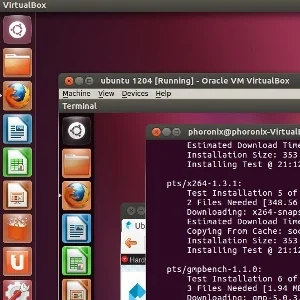Google's Patches To Speed-Up Over-Committed Linux Guest VMs Are Looking Great

The intent of the patches is to provide a fast path for clearing the accessed bit without taking the KVM MMU lock. Following the v2 patches in May, some new performance results have been posted to the kernel mailing list for highlighting the benefits. Google's Yu Zhao noted some rather significant speed-ups inside the VMs when dealing with over-committed hosts.
Spark on ARM64 is consuming 12% less time when sorting four billion random integers twenty times as one stress test. Memcached on POWER9 achieved 10% more operations per second with this patch series. Lastly for Multichase on x86 in 64 micro-VMs achieved 6% more samples with this patch series.
At least from these three benchmarks published so far, this patch series remains quite promising.
12 Comments

